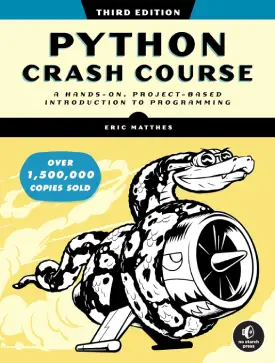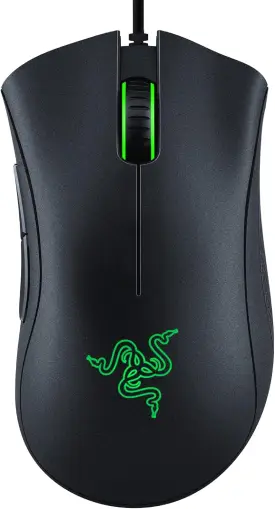Preparing for a Python Interview: Common Python Questions
The Python Interview Preparation
Preparing for a Python interview involves a combination of technical proficiency, problem-solving skills, and effective communication. Getting ready for a Python interview? No sweat, let’s break it down like friends chatting. Here’s the lowdown on prepping: a guide to help you get ready.
Know Your Basics
First things first, make sure you’re comfy with the basics. You know, variables, data types, loops – the ABCs of Python.
Understand Data Structures
It’s like having different tools in your Python toolbox. Get cozy with lists, dictionaries, and tuples. Understand when to use each – it’s like choosing the right wrench for the job.
Master Functions
Functions are your go-to moves. Be clear on how to define them, pass parameters, and return values. It’s basically your Python dance routine.
Grasp Object-Oriented Concepts
OOP is like the superhero version of coding. Classes, objects, inheritance – it’s the Avengers of Python. Know how to use them to save the day.
Ace Algorithm and Problem-Solving
Every coder’s rite of passage. Practice solving problems, understand time complexity, and know your Big O notation. It’s like navigating a maze – the cleaner and quicker, the better.
Dive into Python Libraries
Libraries are your friends. Know the popular ones like NumPy, Pandas, and maybe even a bit of Django. They’re like having extra hands to help with heavy lifting.
Explore Flask and Django
If you’re interviewing for web dev roles, touch up on Flask and Django. They’re like the architects for building web applications. Know how to set up routes, templates, and databases.
Get Hands-On with Projects
Real-world projects are your secret weapon. Whether it’s a simple web app or a data analysis project, having something tangible to talk about shows you mean business.
Stay Calm and Ask Questions
Finally, take a deep breath. Interviews are a two-way street. Don’t be shy to ask questions about the company or the team. It’s like feeling out if this is the right fit for you too.
Review Common Interview Questions
It’s like a sneak peek into the interviewer’s playbook. Google common Python interview questions and run through them. It’s not about memorising answers; it’s about getting comfortable with problem-solving on the fly.
Common Python Questions
Python interviews often cover a range of topics, including fundamental Python concepts, data structures, algorithms, and specific libraries or frameworks. Here are some common Python interview questions:
1. Basic Python Concepts:
- What is Python? Explain its advantages.
- Differentiate between Python 2 and Python 3.
- Explain the Global Interpreter Lock (GIL) and its impact on multi-threading.
2. Data Types and Variables:
- Describe different data types in Python.
- Explain the difference between list and tuple.
- How does string interpolation work in Python?
3. Control Structures:
- Explain the difference between if, elif, and else.
- Discuss the purpose of while and for loops.
- How is exception handling done in Python?
4. Functions:
- Define a function in Python.
- Discuss the difference between return and yield.
- Explain the concept of lambda functions.
5. Data Structures:
- Discuss the use cases for lists, sets, and dictionaries.
- Explain how a stack and a queue work.
- Implement a binary search tree.
6. Object-Oriented Programming (OOP):
- Define class and object in Python.
- Explain the concepts of inheritance and polymorphism.
- How is encapsulation achieved in Python?
7. Python Libraries:
- Discuss use cases for NumPy and Pandas.
- Explain how to handle exceptions using the try and except blocks.
- Discuss the role of Flask/Django in web development.
8. Algorithms:
- Implement a basic sorting algorithm (e.g., bubble sort, quicksort).
- Discuss the time complexity of common algorithms.
- Solve a coding problem involving dynamic programming.
9. Web Development (if applicable):
- Explain the difference between GET and POST requests.
- Discuss the role of middleware in Django.
- Implement a simple Flask or Django web application.
10. Database and SQL:
- Discuss the advantages of using an ORM (Object-Relational Mapping).
- Write a SQL query to retrieve data from a database.
- Explain the concept of database normalization.
11. Testing:
- Discuss the importance of unit testing.
- Explain the purpose of the unittest library in Python.
12. Concurrency:
- Explain the Global Interpreter Lock (GIL) and its impact on multi-threading.
- Discuss the advantages of using asynchronous programming in Python.
13. Machine Learning (if applicable):
- Explain the role of scikit-learn in machine learning.
- Discuss the difference between supervised and unsupervised learning.
- Implement a basic machine learning model in Python.
These questions cover a broad spectrum of Python knowledge. Depending on the specific job role, you may encounter questions more tailored to areas like web development, data science, or machine learning. It’s important to review the job description and requirements to prepare effectively for a Python interview.
To Wrap Up
So, there you have it – a friendly guide to rocking that Python interview. Remember, the key to a successful Python interview is a combination of technical knowledge, problem-solving skills, and effective communication. Tailor your preparation based on the specific role and industry you’re targeting.
You’ve got this! Good luck!
More at aicorr.com:
Decoding the Puzzle: Wrestling with AI Challenges on the Horizon
Data occupations: Data Scientist vs Data Engineer vs Data Analyst vs Machine Learning Engineer
A Beginner’s Guide: Installing Python Packages
How to remove duplicates in SQL




